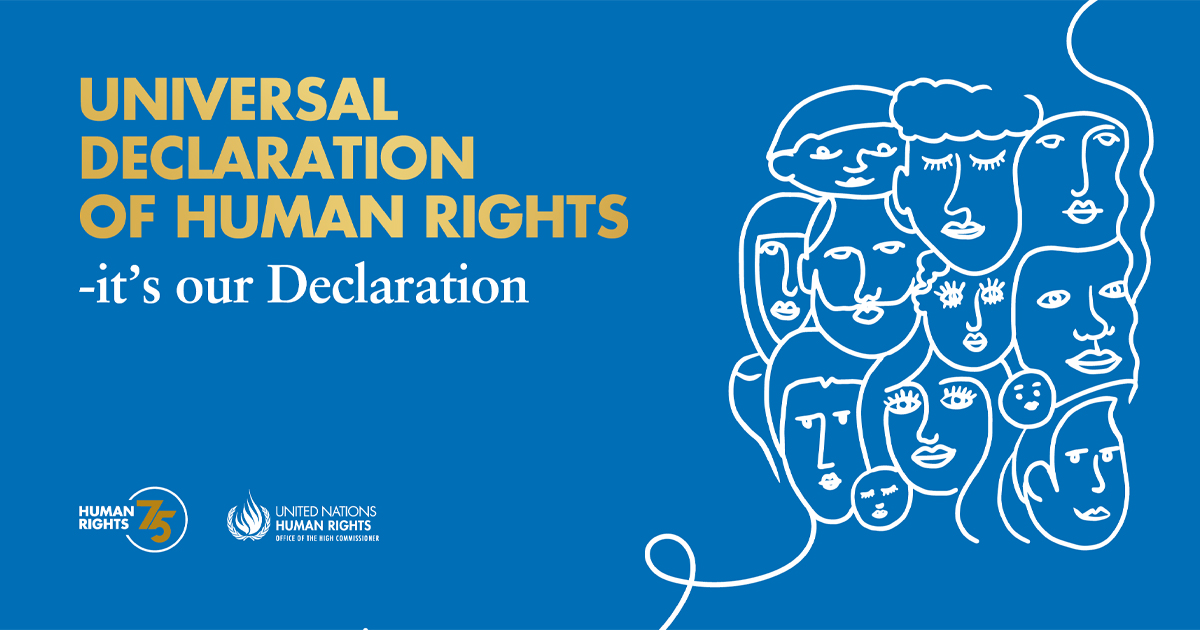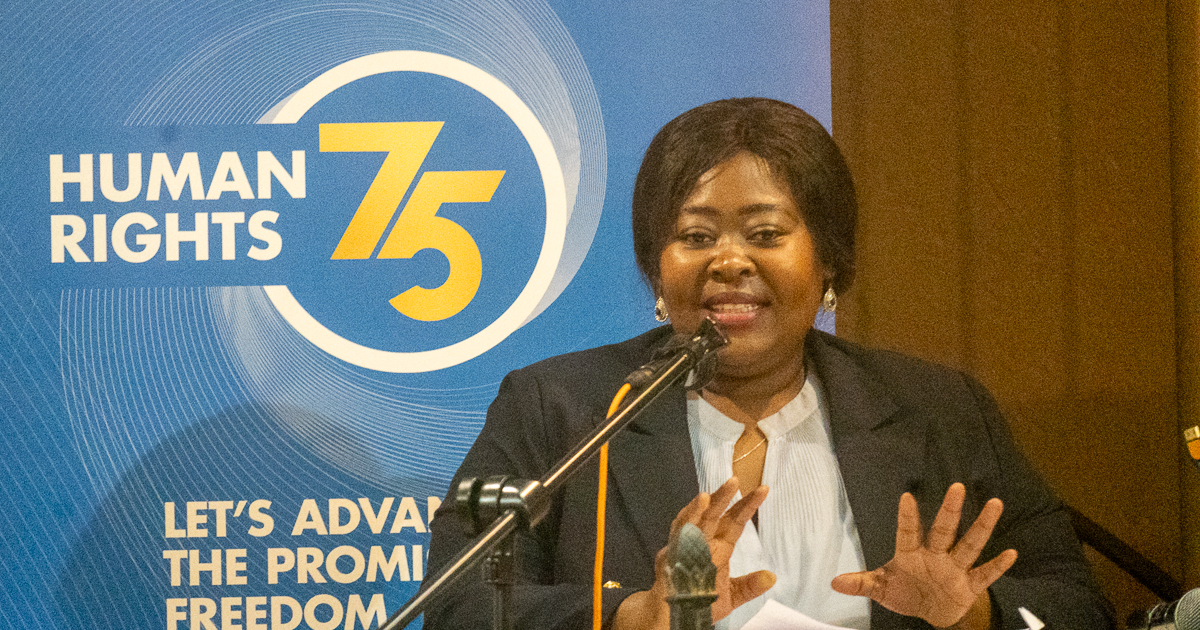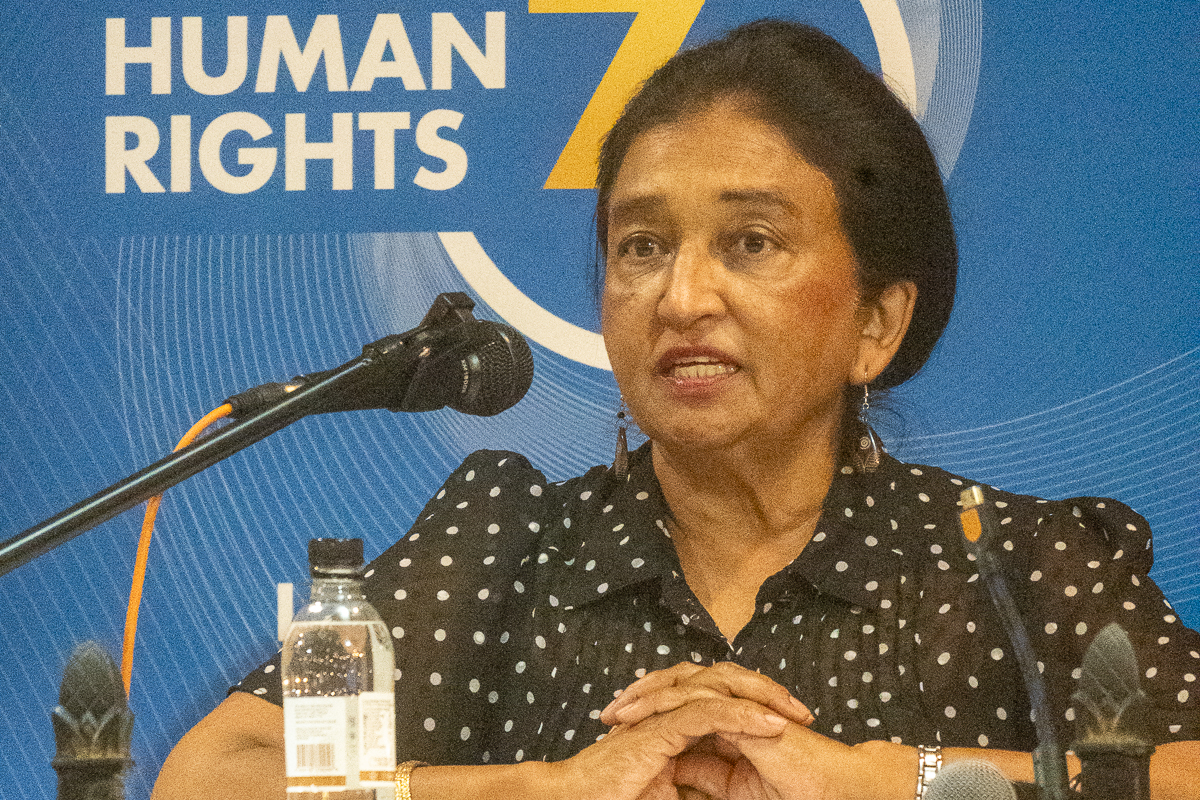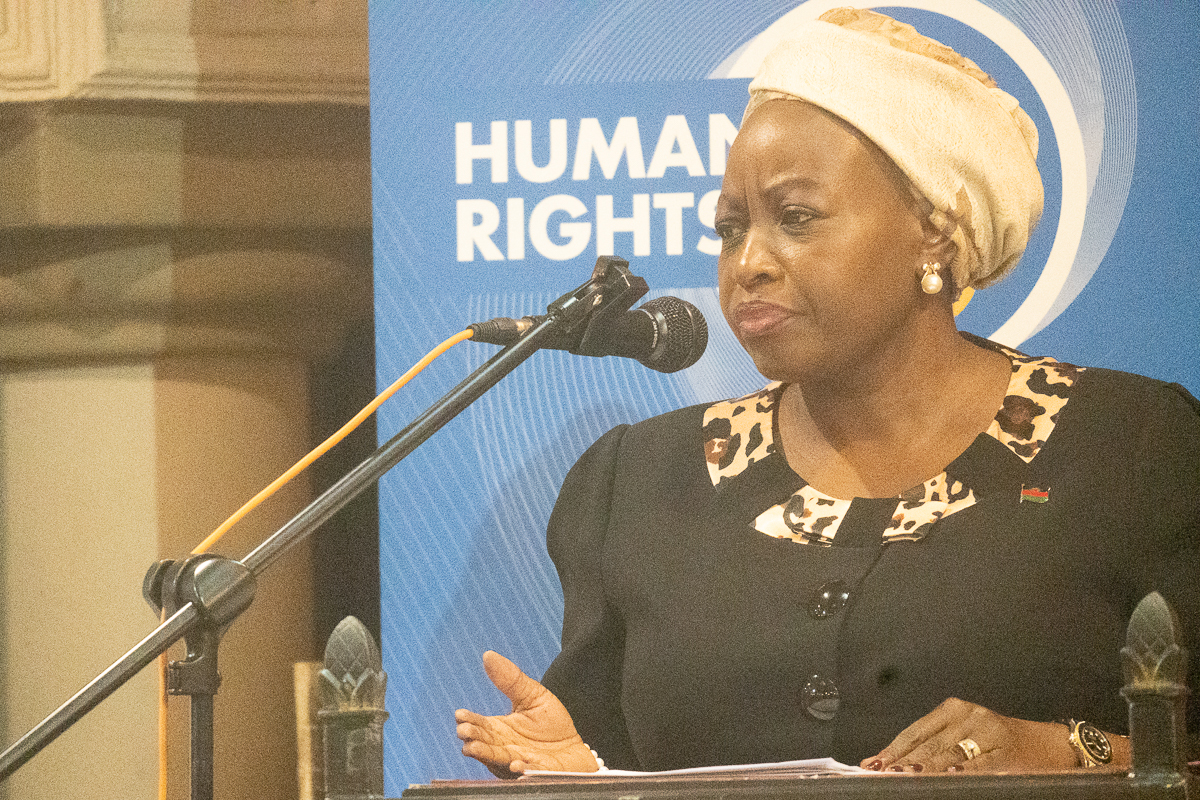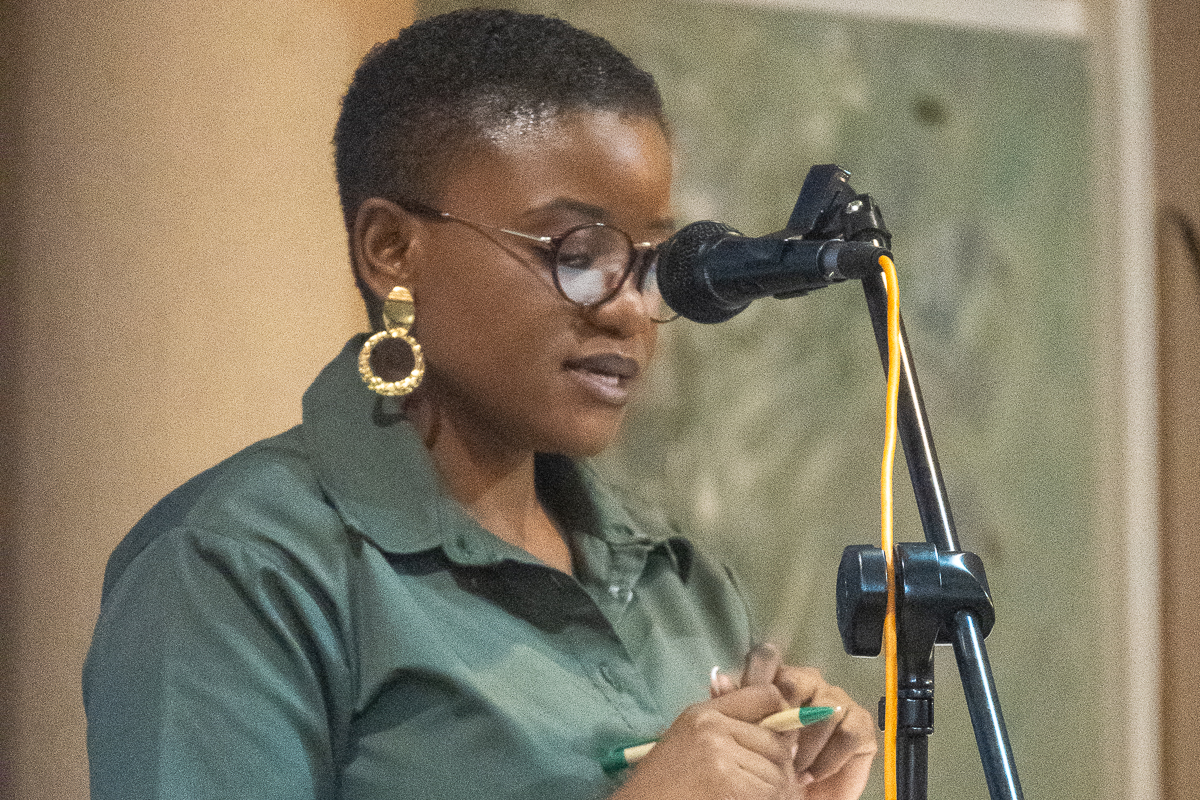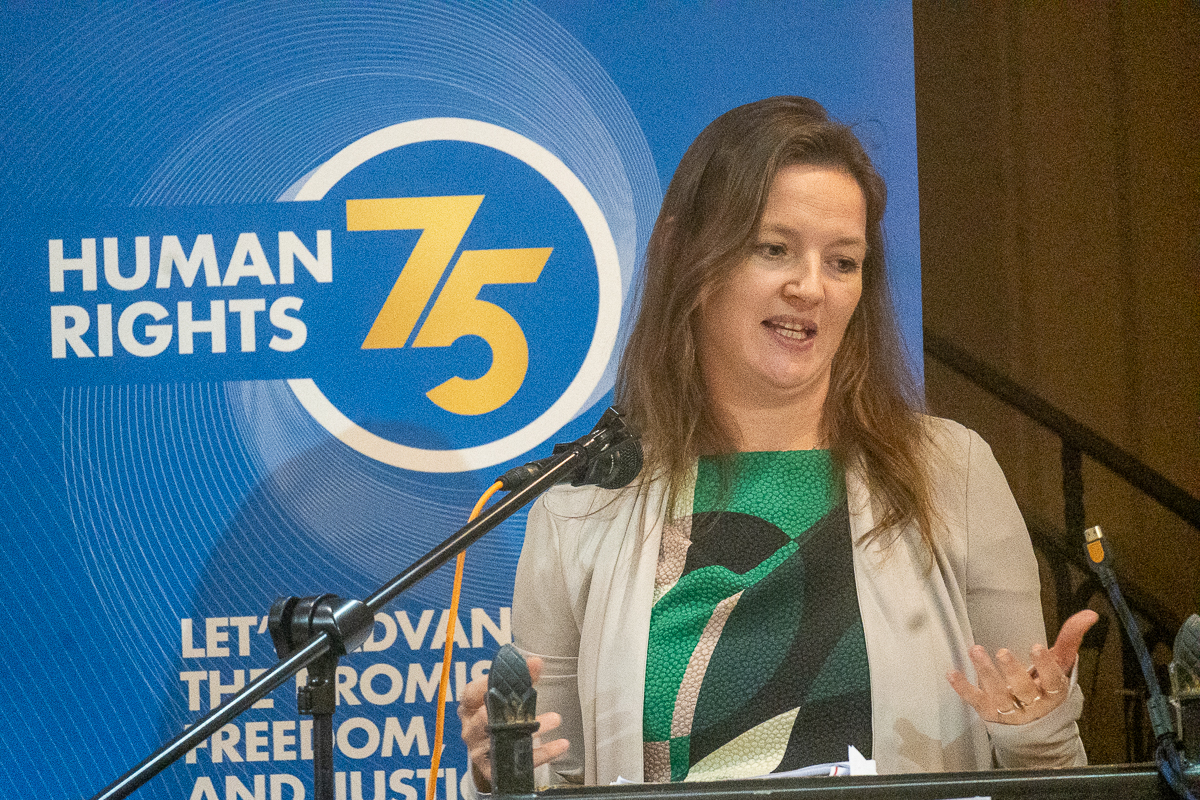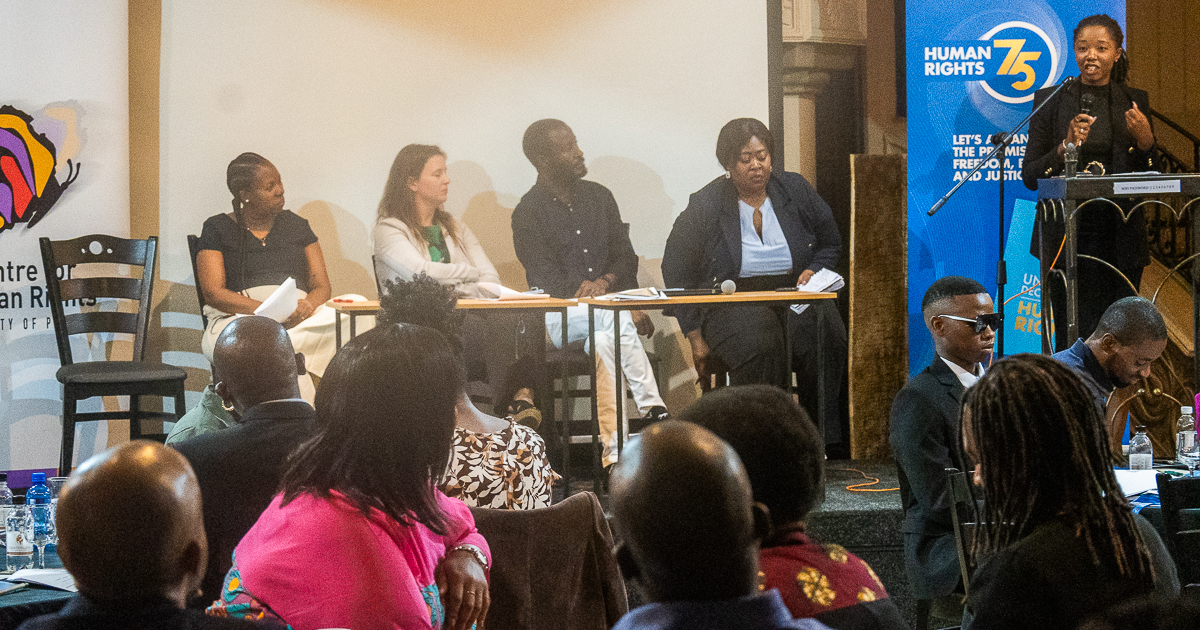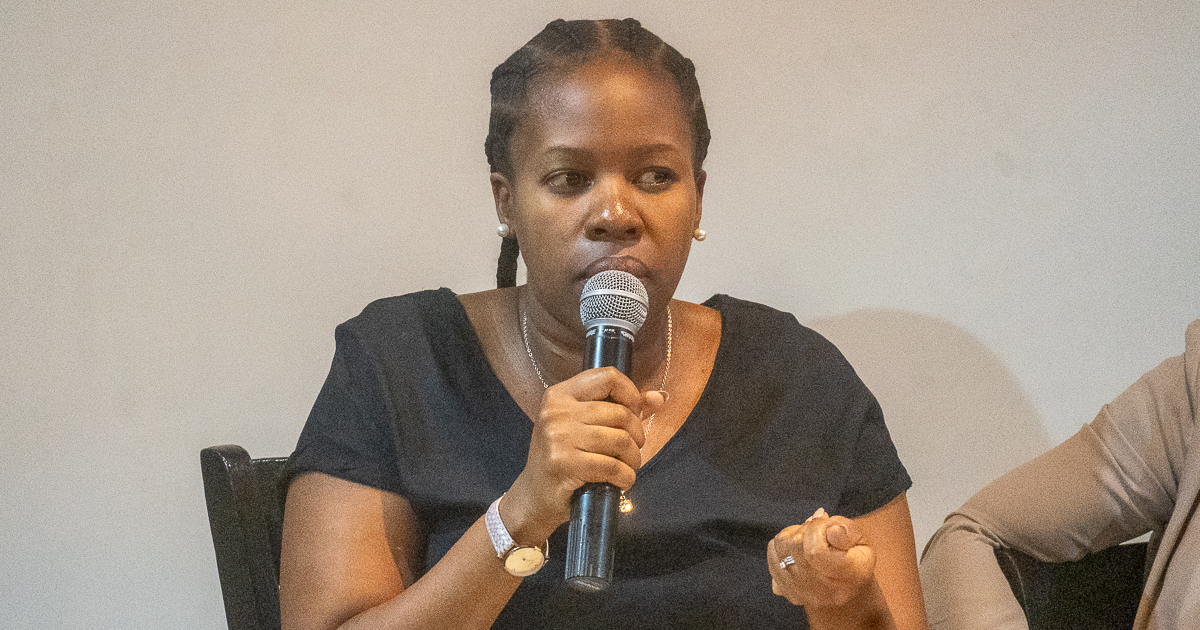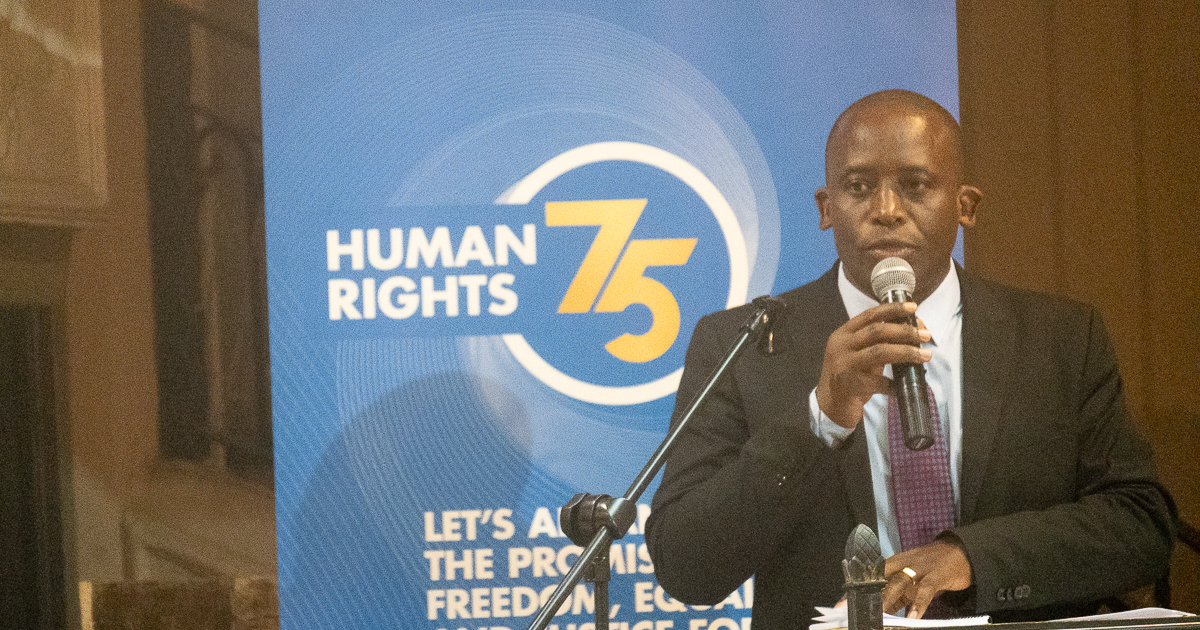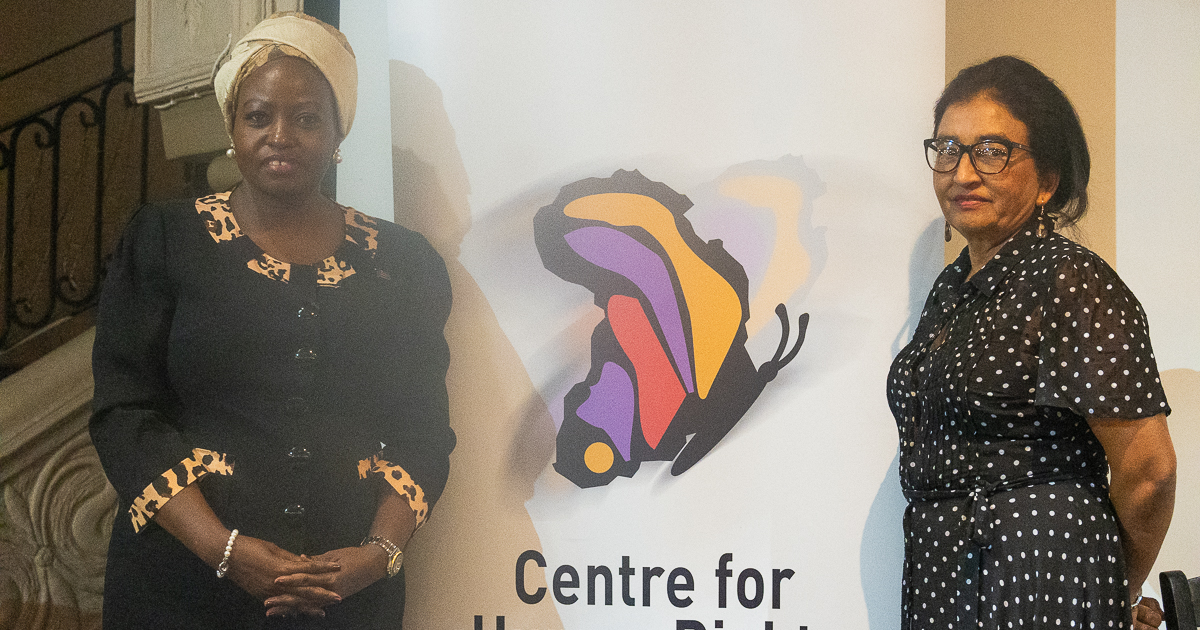2023 marks 75 years since the adoption of the Universal Declaration of Human Rights (UDHR) and 25 years of the United Nations Declaration on Human Rights Defenders. The Centre for Human Rights, Faculty of Law, University of Pretoria, OHCHR Regional Office for Southern Africa (OHCHR ROSA) and the European Union Delegation in South Africa, in partnership with Ford Foundation, hosted a commemoration of this milestone on 4 December 2023.
The UDHR is an all-encompassing text. The preamble states that "the recognition of the inherent dignity and of the equal and inalienable rights of all members of the human family is the foundation of freedom, justice and peace in the world". Bonolo Makgale, the Programme Manager of the Democracy and Civic Engagement Unit of the Centre, noted that this preamble fundamentally locates the individual and the well-being of the individual at the epicentre of all social order. The rights holistically address diverse contexts where human well-being must be taken care of.
In her opening remarks, Professor Nkatha Murungi, the Acting Director of the Centre for Human Rights, highlighted the immense contribution of the UDHR as a foundation for human rights norms which have fundamentally shaped the world post its adoption. In this light, she this noted the opportunity of the commemoration as a moment for reimagining the UDHR to shape the next 75 years. Ms Abigail Noko, OHCHR Representative, urged for the recognition of the global contribution of human rights defenders who continue to breathe life into the Declaration as part of celebrating 25 years of the UN Human Rights Defenders Declaration. Globally, social movements have worked tirelessly to put an end to all forms of injustice and discrimination, and international human rights monitoring mechanisms have grown significantly.
In their message of solidarity, the European Union Delegation in South Africa and the South African Diplomatic Corps acknowledged that the UDHR has profoundly remained a cornerstone of the global advancement of human rights. The High Commissioner for Malawi in South Africa, HE Ms Stella Hauya Ndayu, posited that as we celebrate this milestone, it is imperative to reflect on the current state of human rights in Africa. While we acknowledge that Africa has made commendable progress, she noted the need not to turn a blind eye to ongoing challenges such as poverty, inequality, discrimination, and violence that continue to obstruct the complete realisation of human rights on the continent. We must, therefore, confront the enduring challenges that persist.
Retired Judge of the High Court in KZN, Judge Pillay, titled her keynote address: "Human Rights and Liberal Democracy – a play of paradoxes." Referring to examples of human rights violations in a few democracies, she spotlighted the push and pull tension between peace and stability on the one hand and conflict and cruelty on the other hand. She posed challenging questions: Can humans live without being cruel? Can humans survive without killing? Knowing that every conflict must end in dialogue, she deprecated the war in Gaza. She described the Declaration as a "classic example of a single text facilitation leading to consensus amongst diverse groups and interests.” Unquestionably, the Declaration remains both a reference point and a springboard for human rights law since World War II. She argued, it would be "a mistake to assume that the Declaration, despite its comprehensive content, is sufficient to deliver the goods on human rights."
The last panel reflected on how across much of Africa, civilians have continued to bear the brunt of armed conflict, political and social unrest, and government repression against critical and independent voices. This is particularly true for the SADC region that has, in recent years, witnessed significant human rights violations. These include unlawful arrests and persecution through prosecution, extrajudicial killings, restrictions on freedom of expression and of the media, and the constant shrinking of civic space. In this context, Dr. Sishuwa Sishuwa explained that civil society organisations and human rights defenders in the region have, in response, implemented a series of broad strategies to counter this anti-human rights movement. These include research and production of reports on violations; strategic litigation against violations by both the private and public sectors; advocacy and campaigning; protests and mobilisations against violations, especially of political and civil rights; the adoption of protective measures such as offering legal assistance to victims of violations; and the innovative use of technology and social media platforms to counteract internet shutdowns, enhance safety and create evidence for accountability.
In her concluding remarks, Ms Abigail Noko stated that, “We the people shall always rise. The people shall rise because we are all born free and equal in dignity and rights. The people shall rise because of the resilience of human rights defenders. The people shall rise because freedom, equality, and justice for all is non-negotiable”.
For more information, please contact:

Tel: +27 (0) 12 420 4199
Fax: +27 (0) 86 580 5743
bonolo.makgale@up.ac.za

Fax: +27 (0) 86 580 5743
tariro.sekeramayi@up.ac.za

